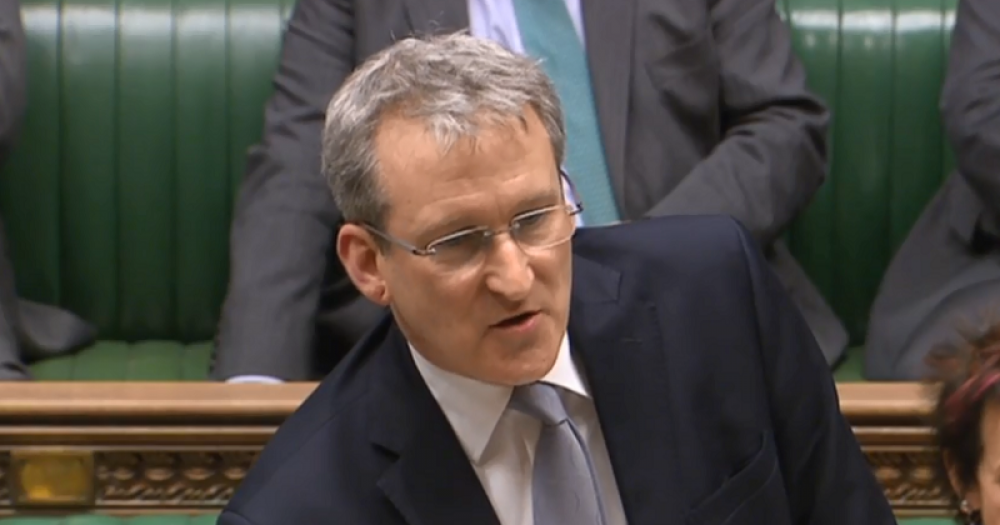The new education secretary is “carefully considering” whether or not to scrap a cap on faith-based admissions to free schools.
During his first appearance at education questions since he took the top job in education on January 8, Damian Hinds told MPs today that he still hasn’t decided whether to get rid of the 50-per-cent cap.
Here’s what we learned from today’s questions.
1. Plans to lift the cap are being ‘carefully considered’
Hinds’s appointment as education secretary has led to speculation that the lifting of the 50-per-cent cap on faith-based admissions to free schools is more likely to go ahead on his watch than under his predecessor.
The new education secretary has previously spoken out against the cap, whereas Justine Greening was understood to be more supportive of it.
However, Hinds said today that he has still not made up his mind, claiming that the cap, along with other proposals set out in the schools that work for everyone consultation, is still being “carefully considered”.
“I value greatly the contribution that church and faith schools make to our education system. Every child deserves a good school place, which is why the schools that work for everyone consultation set out proposals to enable a wider group of providers, including, for example, the Catholic Church, to set up new schools.”
2. Relationships education will be LGBT-inclusive
Answering questions about government proposals to make sex and relationships education compulsory, schools minister Nick Gibb was asked about his new boss’s commitment to making the new curriculum LGBT-inclusive.
The sacking of Justine Greening, seen as a champion of LGBT issues, in the middle of reforms to relationships education had led to concerns that a commitment to a LGBT-inclusive curriculum might be lost.
But when asked by Labour MP Alex Norris whether Hinds shared his predecessor Justine Greening’s commitment to LGBT-inclusive relationships education, Gibb said he “can give that assurance”.
“We are clear that the new subjects should ensure that young people learn that there are different types of relationships,” he said. “Schools should ensure therefore that RSE is inclusive and meets the needs of all young people”.
3. The government is ‘exploring opportunities’ on free school meals eligibility
Nadhim Zahawi, the new children’s minister, faced several questions from MPs about the impact of stigma around free school meals on pupil premium payments for schools.
Michelle Donelan, the Conservative MP for Chippenham, and David Drew, the Labour MP for Stroud, said parents were afraid to put their children forward for free school meals, which affected the amount of money handed to schools.
Donelan asked if ministers would consider an “automatic link” between the pupil premium and the benefits system to ensure all children in need of additional funding get it.
Zahawi told MPs the government wants to make it “as simple as possible” for schools and councils to determine free school meals eligibility, and is “exploring opportunities” to make eligibility process “more efficient”.







The 50% cap is often misinterpreted to mean that faith free schools must recruit 50% of their intake from non-faith or other-faith pupils. That’s not so. 50% of the applications are designated faith-based; 50% are designated non-faith or other-faith (parents decide which category to apply for). But if the free school doesn’t have enough applications to fill the non-faith or other-faith places then these vacancies can be filled by faith pupils. That’s how some faith free schools manage to have an intake which is still skewed heavily towards the faith.
All state faith schools, free or not, are paid for by the state. They should not be allowed to discriminate against the children of taxpayers who are not of the faith. They could still retain a faith ethos – this would, of course, result in a degree of self-selection – but not have admission codes which favour particular children.